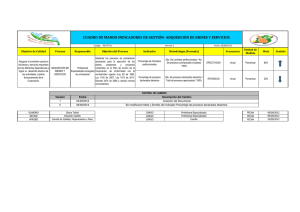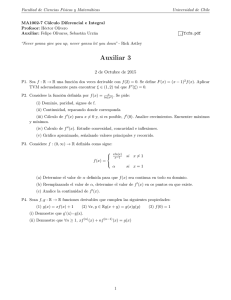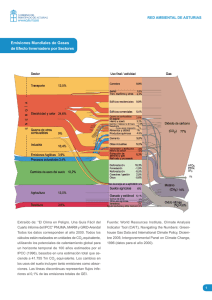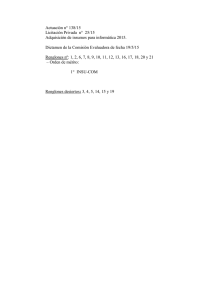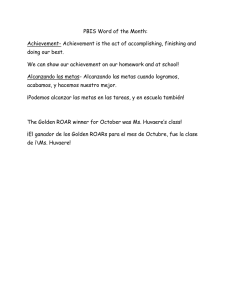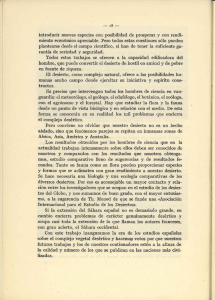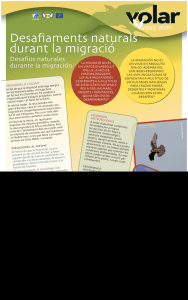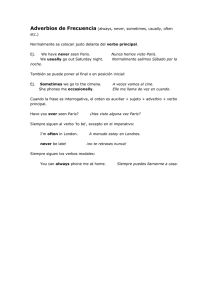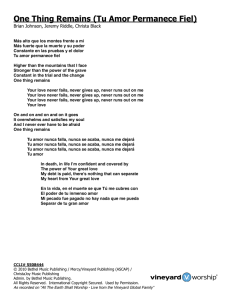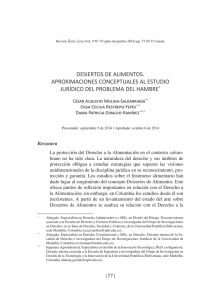Carta del Director/ Director`s Letter
Anuncio
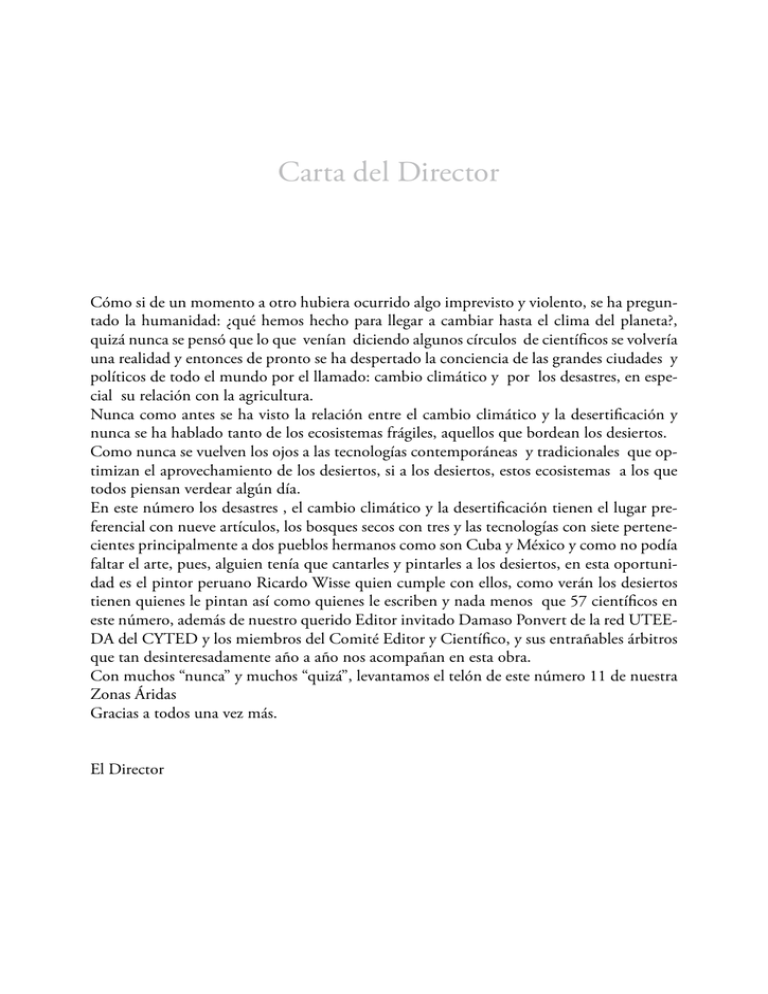
Carta del Director Cómo si de un momento a otro hubiera ocurrido algo imprevisto y violento, se ha preguntado la humanidad: ¿qué hemos hecho para llegar a cambiar hasta el clima del planeta?, quizá nunca se pensó que lo que venían diciendo algunos círculos de científicos se volvería una realidad y entonces de pronto se ha despertado la conciencia de las grandes ciudades y políticos de todo el mundo por el llamado: cambio climático y por los desastres, en especial su relación con la agricultura. Nunca como antes se ha visto la relación entre el cambio climático y la desertificación y nunca se ha hablado tanto de los ecosistemas frágiles, aquellos que bordean los desiertos. Como nunca se vuelven los ojos a las tecnologías contemporáneas y tradicionales que optimizan el aprovechamiento de los desiertos, si a los desiertos, estos ecosistemas a los que todos piensan verdear algún día. En este número los desastres , el cambio climático y la desertificación tienen el lugar preferencial con nueve artículos, los bosques secos con tres y las tecnologías con siete pertenecientes principalmente a dos pueblos hermanos como son Cuba y México y como no podía faltar el arte, pues, alguien tenía que cantarles y pintarles a los desiertos, en esta oportunidad es el pintor peruano Ricardo Wisse quien cumple con ellos, como verán los desiertos tienen quienes le pintan así como quienes le escriben y nada menos que 57 científicos en este número, además de nuestro querido Editor invitado Damaso Ponvert de la red UTEEDA del CYTED y los miembros del Comité Editor y Científico, y sus entrañables árbitros que tan desinteresadamente año a año nos acompañan en esta obra. Con muchos “nunca” y muchos “quizá”, levantamos el telón de este número 11 de nuestra Zonas Áridas Gracias a todos una vez más. El Director Director’s letter As if from one moment to another something unpredictable and violent would have happened, humanity has asked itself: what have we done to get to a point where we are even changing the climate of our planet?, it never might have thought that what some scientists were saying would become reality; and suddenly the conscience of large cities and politicians from all over the world is awakening because of the so called: climate change and because of disasters, especially in their relation with agriculture. As never before, we are noting the relationship between climate change and desertification, and as never before, we are talking so much about fragile ecosystems, those that surround the deserts. As never before, we turn our eyes towards contemporary and traditional technologies which optimize the exploitation of deserts. Yes, of deserts, those ecosystems that all want to see green some day. In this number, disasters, climate change and desertification have a preferential space with nine contributed papers, dry forests are treated in three papers, while technologies in seven, from countries like Cuba and Mexico. And we could not leave out the arts. Somebody had to sing for and paint the deserts. We present a contribution from the Peruvian painter Ricardo Wisse. As you see, deserts have somebody who paints them, but also some who write about them. In this issue we have contributions from 57 scientists, in addition to our invited Editor Damaso Ponvert, from the UTEEDA-CYTED network, the members of the Editorial and Scientific Committee, and the reviewers who selfless accompany the production of our journal year after year. With many “never” and many “maybes”, we present number 11 of Zonas Áridas Thanks to all once more. The Director

